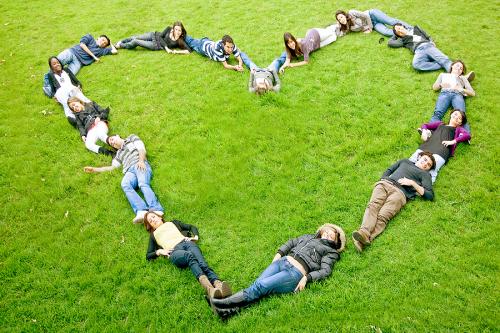You always hear people say, “Giving is good!” People talk about how great giving is, not just for the recipients, but the donors themselves. Why is this? What actually makes giving good for the giver?
I’m here to share with you a few concrete ways in which giving benefits us, the donors!
1. It makes us feel happy.
If you’ve given money to charity before – donated old clothes to a shelter, or volunteered with an organization – you’ve probably felt warm and fuzzy. Why is this?
Well, these happy feelings are literally in our biology. In a study done at the National Institutes of Health in 2006, it was found that when people donate money, it “activates certain parts of the brain that are connected to pleasure, social connection and trust, which create a ‘warm glow’ effect.” Some scientists have also said they believe that this selfless behavior releases endorphins in the brain, producing the positive feelings. Some call this the ‘helper’s high.’
2. It’s good for our health.

Many research initiatives have linked different forms of generosity to better health, even among the sick and elderly.
Skeptical?
In a study led by University of California Berkeley professor it was found that elderly people who volunteered their time with +2 organizations were 44% less likely to die over a five-year period than were non-volunteers. Similar results were found by professor Stephanie Brown, who learned that individuals who helped out/gave emotional support to friends and family also had a lower risk of dying over a five-year period than those who didn’t.
So why is this? Well, one reason may be that giving might improve physical health because it helps decrease stress. A 2006 study, put forth by a Johns Hopkins University professor and a professor from the University of Tennessee, found that people who lent a helping hand had lower blood pressure than others, suggesting a direct health connection between giving and good health.
3. It promotes cooperation & social connection.
When you give, you’re more likely to get back. And if you’ve had a history of generosity, you’ve probably noticed this!
Several studies have observed that when you give to others, your generosity is often rewarded eventually by other people (sometimes by the recipient of your gift, sometimes by another). This ripple effect (often shaped as a boomerang) promotes a sense of trust and cooperation throughout a community. It also promotes a sense of closeness others feel toward us and we feel towards others. Lyubomirsky, author of The How of Happiness, writes, “Being kind and generous leads you to perceive others more positively and more charitable”. The author goes on to suggest that giving, “fosters a heightened sense of interdependence and cooperation in your social community.”
4. It arouses feelings of gratitude.
Gifts = gratitude. Whichever end of the gift you’re on, giving or receiving, that gift can elicit feelings of gratitude.
The co-directors of the Research Project on Gratitude and Thankfulness conducted a research project that asked college students to “count their blessings” and cultivate gratitude. The result was they chose to exercise more, be more optimistic, and have a better overall view of their lives!
5. It is contagious!

Giving is contagious; it’s been shown that when one person gives to charity, they spur a ripple effect of giving through their community. In fact, in a study for the book Connected by James Fowler and Nicholas Christakis shows just that: not only does the generous act of one person inspire others to behave generously, but altruism was also found to spread by three degrees. This means your singular act of giving can inadvertently inspire hundreds of people!
So by giving gifts to friends, donating money to a charity, or volunteering your time with a local organization, your generous act may very well help to build stronger social connections and kick start a domino effect of giving through your community!
And don’t be surprised if you catch yourself with a big grin on your face.

